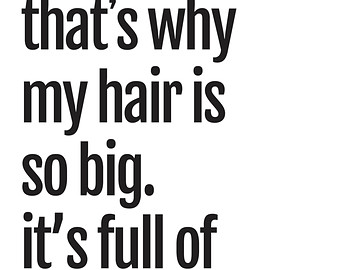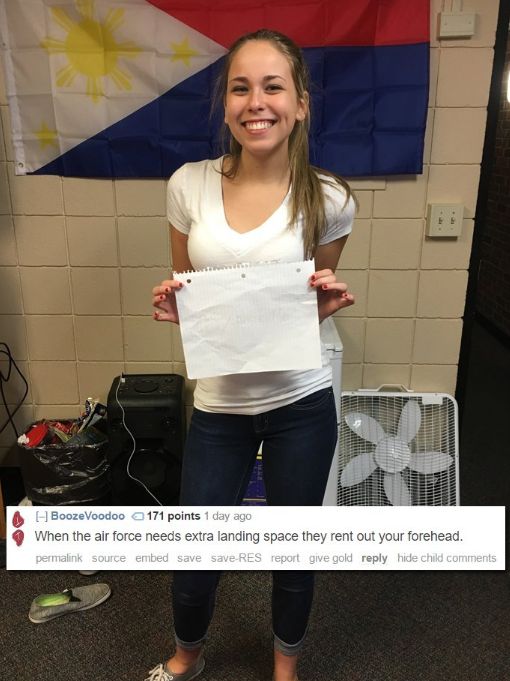

Like yesterday, I posted a picture of Mazzy greeting everyone from her homeland- the Apple Store. UPDATE: Check out Part Two: 22 More Words Totally Butchered by Toddlers.Īnd if you are not already a fan (and why wouldn’t you be?!), check out Mommy Shorts on facebook. I just redesigned the fanpage to fit the timeline layout and I’ve been doing a lot more there than just posting links to Mommy Shorts. If you missed Monday’s post and have any more mispronounced words to add, please do so below. Everyone was silent for a moment, until I turned to the boy and said “That’s right, Frank, FLAGS!” Then they all started laughing and screaming “FLAGS FLAGS!” Thank god for everyone’s sense of humor!” To my horror, the little boy I was watching pointed to the flags and screamed “FLAG!” (but without the “L”).
#BIG FUNNY WORDS FULL#
It was pride weekend and as we walked to the park we passed a house with a front porch full of people celebrating and proudly flying two rainbow flags. “Before I had children I was a nanny for a family in Atlanta.

There is one more word that I didn’t make a picture for because I didn’t want anyone to skim over the post and get the wrong idea. Some are funny, some are adorable and some have major embarrassment potential if said too loudly in public.Įvery one of them is real. For example, Jennifer’s son says “FOCKS” instead of Crocs so when one Croc falls off, her son yells “FOCK OFF, MOMMA!!!”īelow are 21 butchered words that I culled together from about 175 comments. So many readers commented both under the post and on my fanpage with stories about the funny words their kids say incorrectly that I had to do something with them. Almonds as “SALMONS” is one of my favorites. “This shirt is more unique than that one.On Monday, I wrote a post called “Maffles are Melicious” about loving the words Mazzy mispronounces. You might hear expressions like these in spoken English: Here’s a list of absolute adjectives and their opposites (this list is not complete it only shows some examples): Absolute Adjective These are words that are either “yes or no.” For example, dead – you can’t be “a little bit dead” or “very dead” – either YES, you are dead, or NO, you’re not dead. The words pretty and really can be used with both regular and extreme adjectives:Īnother type of extreme adjective is called an “absolute” adjective. However, there are other adverbs we can use to give additional emphasis to the extreme adjective: With extreme adjectives, we CANNOT use these adverbs:

My parents’ house is the biggest house on the street.My neighbor’s house is bigger than mine.With regular adjectives, we can use comparatives and superlatives to compare two or more things: Special Rules for Extreme Adjectives 1) No comparatives/superlatives. For example, the weather can be a little cold, rather cold, very cold, or extremely cold.Įxtreme adjectives or non-gradable adjectives are words that mean “extremely + adjective” – for example, “freezing” means “extremely cold.” The weather can’t be “a little bit freezing” or “very freezing” – because the word “freezing” itself automatically means “extremely cold.” Regular & Extreme Adjectives List Regular Adjective Some adjectives in English are gradable – that means you can have different degrees or levels of that quality. “Cold” is a regular adjective, and “freezing” is an extreme adjective.Īdjectives are words that describe the qualities of something.


 0 kommentar(er)
0 kommentar(er)
